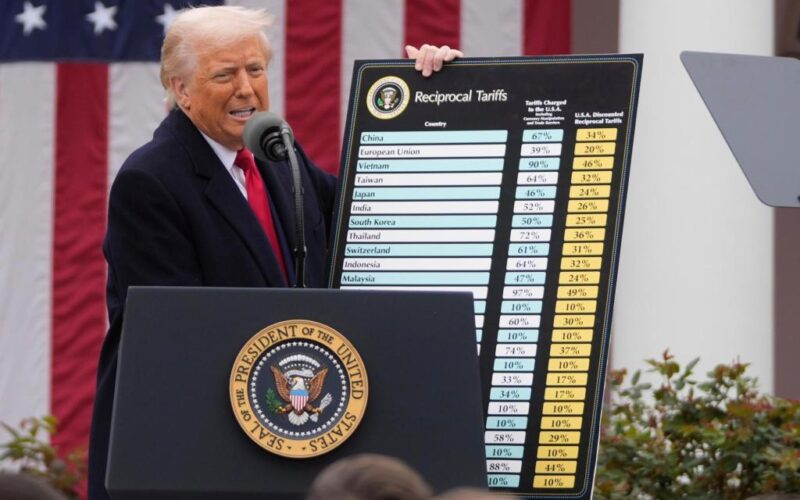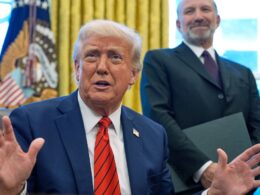A dozen states, including New York, are rightly taking the Trump administration to court, specifically the U.S. Court of International Trade, over what they claim is its abuse of the power to levy tariffs.
We’re not administrative law professors, but it more than seems like the complainants have a solid case — because, like them or hate them (and everyone should hate them), it’s impossible to dispute that the president has slapped levies on countries and products in the most arbitrary manner imaginable, abusing emergency powers granted by federal law.
According to the Constitution — you remember it, that document conservatives claim to care about? — it’s the legislature, not the executive, that has the power to levy tariffs. Article I, Section 8 gives Congress authority to “regulate Commerce with foreign Nations” and the power to “lay and collect Taxes, Duties, Imposts and Excises.”
It’s also true that over time, Congress has willingly passed tariff-enforcement authority to the president, and the Supreme Court has blessed this delegation of authority.
But when a president takes specific action, he has to do so under specific laws — over which power-mad, damn-the-rules Donald Trump has run roughshod.
Everyone by now knows how Trump has imposed tariffs on imported products one day, revised them the next, re-revised them the next, suggested he might cancel them the following — then doubled them the day after that. The abrupt and inexplicable shifts have been dizzying and destabilizing to anyone in the business world, where predictability is the soil in which the seeds of investment get planted.
The lawsuit argues credibly that they’re not only economically deleterious but illegal.
Trump points to the International Economic Emergency Economic Powers Act as the basis for his authority to take the most sweeping action, but that law makes clear that it can only be invoked “to deal with an unusual and extraordinary threat with respect to which a national emergency has been declared for purposes of this chapter and may not be exercised for any other purpose.”
In a time of relative prosperity, is there a national emergency simply because Trump says so? Could he deem it an emergency if he wakes up with a bad feeling in the pit of his stomach?
To Trump, trade deficits with nations are a crisis; they mean other nations are essentially stealing from the United States. In reality, they’re just rational exchanges in which our people and businesses pay the people and businesses outside our borders to produce something of value for us. New York buys oranges from Florida and computing products from California; that doesn’t mean it’s losing anything to those states.
The same can be said of the countless goods America buys from Canada, Mexico and China. Indeed, often those products are made at lower cost and higher quality in ways that clearly benefit American consumers.
In these United States, executive authority is expansive. In addition to exercising their core, constitutionally-prescribed powers, presidents now effectively declare war, create expensive programs and generate all kinds of other public policies.
Given the way the Republic has evolved, the imposition of tariffs may generally be part of a president’s portfolio. But they can’t be imposed capriciously, in fits of pique or in direct contravention of our laws.
Donald Trump, defend yourself.








